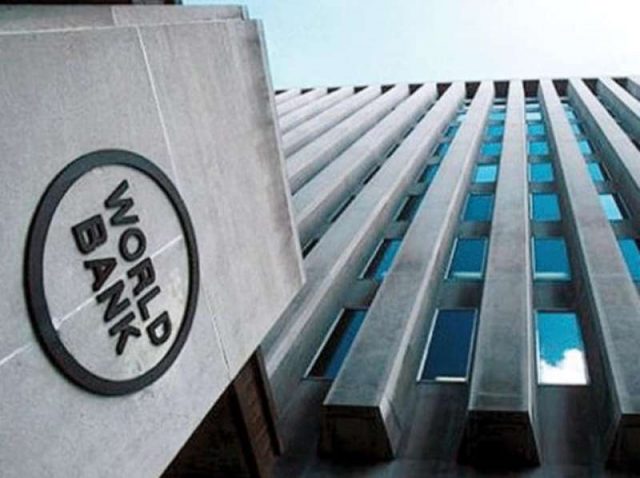The report represents the culmination of the World Bank’s engagement on poverty- and inequality-relevant data and analytics in Nigeria in the past two years
WED 23 MARCH, 2022-theGBJournal| Sluggish growth, low human capital, labor market weaknesses, and exposure to shocks are holding Nigeria’s poverty reduction back says a new World Bank report “A Better Future for All Nigerians: Nigeria Poverty Assessment 2022”.
The report represents the culmination of the World Bank’s engagement on poverty- and inequality-relevant data and analytics in Nigeria in the past two years. It draws primarily on the 2018/19 Nigerian Living Standards Survey (NLSS), which provided Nigeria’s first official poverty numbers in almost a decade, as well as the Nigeria COVID-19 National Longitudinal Phone Survey (NLPS). These surveys were implemented by Nigeria’s National Bureau of Statistics (NBS) in collaboration with the World Bank.
According to the report, which brings together the latest evidence on the profile and drivers of poverty in Nigeria, as many as 4 in 10 Nigerians live below the national poverty line.
Many Nigerians – especially in the country’s north – also lack education and access to basic infrastructure, such as electricity, safe drinking water, and improved sanitation.
The report further notes that jobs do not translate Nigerians’ hard work into an exit from poverty, as most workers are engaged in small-scale household farm and non-farm enterprises; just 17 percent of Nigerian workers hold the wage jobs best able to lift people out of poverty.
The report adds that climate and conflict shocks – which disproportionately affect Nigeria’s poor – are multiplying, and their effects have been compounded by COVID-19; yet government support for households is scant. Households have adopted dangerous coping strategies, including reducing education and scaling back food consumption, which could have negative long-run consequences for their human capital. These issues affect some parts of Nigeria more than others; the report captures this spatial inequality by providing statistics at the state level, which is crucial given Nigeria’s federal structure.
“It is clear that much needs to be done to help lift millions of Nigerians out of poverty, including boosting health and education, bolstering productive jobs, and expanding social protection” said Shubham Chaudhuri, World Bank Country Director for Nigeria. “Yet implementing pro-poor initiatives requires unlocking fiscal space; reforming expensive subsidies – including fuel subsidies – will be essential, alongside countervailing measures to protect the poor as reforms are effected.”
The report suggests at least three types of deep, long-term reforms to foster and sustain pro-poor growth and raise Nigerians out of poverty. These include: macroeconomic reforms (including fiscal, trade, and exchange rate policy); policies to boost the productivity of farm and non-farm household enterprises; and improving access to electricity, water, and sanitation while bolstering information and communication technologies.
These reforms together could help diversify the economy, invigorate structural transformation, create good, productive jobs, and support social protection programs as well as other redistributive government policies. The report emphasizes that these reforms are urgent as Nigeria’s population continues to grow; now is the time to ensure that the country seizes the promise of its young people for economic prosperity. It adds that shaping the specifics of Nigeria’s poverty-reducing policies will depend strongly on redoubling efforts to gather and analyze data regularly.
“Conflict is spreading and intensifying across Nigeria, so it is important to implement programs to support poor and vulnerable Nigerians that are simple and flexible while also limiting the risk of exacerbating fragility and conflict” said Tara Vishwanath, World Bank Lead Economist and co-author of the report. “Data can provide vital guidance on how to design, monitor, and evaluate pro-poor projects and programs, giving a voice to poor and vulnerable Nigerians” added Jonathan Lain, World Bank Economist and co-author of the report.
New official household survey data, due to be collected later in 2022, will provide far more detailed insights into the dynamics of and the key constraints on poverty reduction, as well as new pro-poor policies. By investing in data, Nigeria can build trust, accountability, and transparency, taking substantial strides on its pathway to poverty reduction.
Twitter-@theGBJournal|Facebook-The Government and Business Journal|email: gbj@govbusinessjournal.ng|govandbusinessj@gmail.com










